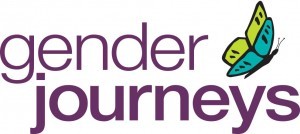Menu
Close
Gender Journeys: Reducing Isolation, Increasing Connection
Feb 23, 2018

by Tanya Kowalenko, Educator and Kids on the Block Coordinator
“Trans people have been advocating for each other for decades,” says Ronnie, an Education and Support Worker with the Gender Journeys program at C.M.H.A. H.K.P.R.
However, these informal supports are not enough.
Transgender and gender-diverse individuals experience significant social isolation because of complex factors including stigma, internalized transphobia, discrimination, familial rejection, a lack of adequate supports, limited access to trans-sensitive healthcare and knowledgeable service providers. Additionally, transgender individuals experiencing social isolation are at a high risk for depression, anxiety, suicidal ideation, and other persistent mental illnesses.
Unfortunately, as previously stated, there has been a lack of funded programming, education and support for the transgender community.
However, on February 12th, C.M.H.A. H.K.P.R. was thrilled to announce that the Ontario Trillium Foundation, an agency of the Government of Ontario, has just awarded Gender Journeys with a Grow Grant of $648,700 over three years to build on the successes of the Seed Grant received when we first offered Gender Journeys from 2013 to 2016.
Gender Journeys is an evidence-based program, which has been proven to reduce social isolation for trans individuals, leading to improved outcomes. The program was developed through input from the trans community and allies. All program facilitators are trans or gender-diverse individuals or family members of this community.
Through peer and family support groups, one-on-one peer mentoring, public outreach, events, education and training, Gender Journeys aims to create a community that provides:
- Meaningful peer-to-peer connections for trans people who experience social isolation.
- Support stronger, more resilient family and ally networks to provide support and social connections to their trans friends and family members.
- Informed, inclusive and sensitive service providers and employers to provide identity-affirming services and employment.
All of these objectives lead to the program’s long-term goal of a community where:
“Transgender individuals are supported to develop ongoing, flourishing social connections through their peers, families, allies, service providers, and employers.”
Zoey, a previous Gender Journeys participant, who is now an Education and Support worker with Gender Journeys, attests to the importance of this program.
“It’s a loving and welcoming environment that is stress free, when everything else as a trans person is stressful. If it wasn’t for the group, I honestly wouldn’t be here today.”
Gender Journeys also “expands beyond the reaches of the group,” says Ronnie.
As Ronnie moved to Peterborough and was transitioning as a non-binary person, they met their now-husband, Drew, who was a Gender Journeys participant. By receiving support himself, Drew was able to help Ronnie in their journey and led to them feeling more confident and empowered to use their new name and to advocate for themselves when working with health professionals.
Gender Journeys reached over 1600 people, including clients, family members, spouses, partners and organizations from 2013-2016 and we are confident that the program will reach many more when it resumes this year.
For more information and to access the Program go to our Gender Journeys page.To access more LGBTQ+ resources and information use the following links:
- PFLAG Peterborough
- Peterborough Aids Resource Network (PARN), Rainbow Youth Partner
- Rainbow Services Organization
- Rainbow Services Organization: Local Resource List
- Trent Queer Collective
For more information, please explore the links below to some of the research referenced to create this evidence-based program.
- Austin, A., & Goodman, R. (2017). The Impact of Social Connectedness and Internalized Transphobic Stigma on Self-Esteem Among Transgender and Gender Non-Conforming Adults. Journal of Homosexuality, 64(6), 825-841
- Chavez-Korell, S., & Johnson, L. T. (2010). Informing Counselor Training and Competent Counseling Services through Transgender Narratives and the Transgender Community. Journal of LGBT Issues in Counseling, 4(3-4), 202-213.
- Mizock, L., & Mueser, K. T. (2014). Employment, Mental Health, Internalized Stigma, and Coping with Transphobia among Transgender Individuals. Psychology of Sexual Orientation and Gender Diversity, 1(2), 146-158.
- Thornhill, L., & Klein, P. (2010). Creating Environments of Care with Transgender Communities. Journal of the Association of Nurses in AIDS Care, 21(3), 230-239.
- White Hughto, J. M., Reisner, S. L., & Pachankis, J.E. (2015). Transgender Stigma and Health: A Critical Review of Stigma Determinants, Mechanisms, and Interventions. Social Science and Medicine, 147, 222-231.
- Yadegarfard, M., Meinhold-Bergmann, M. E., & Ho, R. (2014). Family Rejection, Social Isolation, and Loneliness as Predictors of Negative Health Outcomes (Depression, Suicidal Ideation, and Sexual Risk Behavior) Among Thai Male-to-Female Transgender Adolescents. Journal of LGBT Youth, 11(4), 347-363.